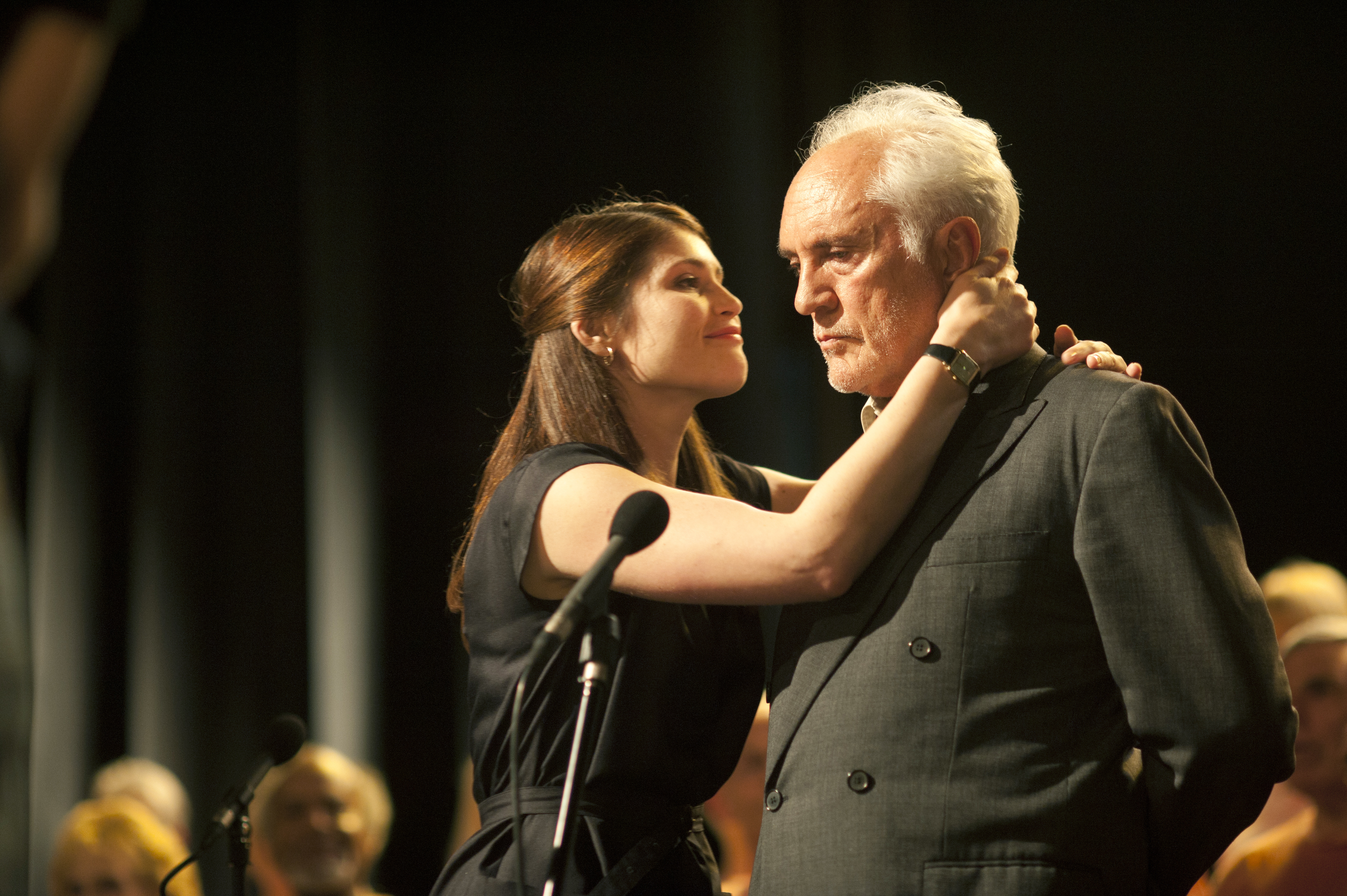Unfinished Song
Opens Fri., July 5 at Seven Gables. Rated PG-13. 93 minutes.
Terence Stamp has been around a long time, yet he’s paradoxically made himself scarce on screen. A handsome star of the ’60s in Billy Budd and other pictures, he famously dropped out of the movies for a decade-long spiritual quest in India. His comeback role was General Zod in the 1978 Superman (a part now played by Michael Shannon in Man of Steel). Since then, he’s popped up for interesting turns—The Adventures of Priscilla, Queen of the Desert; The Limey; etc.—without making a full-time commitment to his craft. There’s a kind of actorly diffidence to Stamp, rare in a profession of people-pleasers. Take it or leave it, he seems to say, and his taciturn character, Arthur Harris, is consistent in this regard. He’s a retired hard-ass living in the suburbs, dismissive of his adult son (Christopher Eccleston), doting on his adorable granddaughter, and devoted to his cancer-stricken wife Marion (Vanessa Redgrave), who sings incongruous pop songs with the local geezer choir. (Gemma Arterton plays its relentlessly positive leader, Elizabeth.) Arthur scoffs at their jolly music. “You know how I feel about enjoying things,” he harrumphs. Indeed we do.
Emotional repression, cancer, family rifts, and song—you can see where this is going, right? Writer/director Paul Andrew Williams must surely have seen the 2007 doc Young@Heart about elderly American choir singers belting out rock tunes, and his intent in casting two eminent Brits was to create one of those quality Euro tearjerkers that typically carry the Working Title, Miramax, or Weinstein brands. But in this recent genre of boomers staring down the reaper (see Quartet, A Late Quartet, The Best Exotic Marigold Hotel, etc.), the writing matters more than the casting. The short-shorn Redgrave is lively and affecting as a woman whose clock is winding down, and Stamp is suitably stern and confounded in response. (Arthur is a man who’ll cry only with the door shut tight behind him.) They’d be great doing Pinter or Beckett together, on a stage sanded clean of all Williams’ sticky sentiment.
What barely held my interest—barely—was trying to guess what Arthur’s final tribute song to his wife would be. Because he and Marion are of a pub-singing, pre-Beatles generation, there’s a rich, deep catalog of English popular song for the film to mine. (Think of Dennis Potter and The Singing Detective.) Instead, however, the choir sings mainly from the American jukebox, and Arthur finally settles on Billy Joel. Yet Stamp sells it like a pro. He’s still above it all, like General Zod.
bmiller@seattleweekly.com








